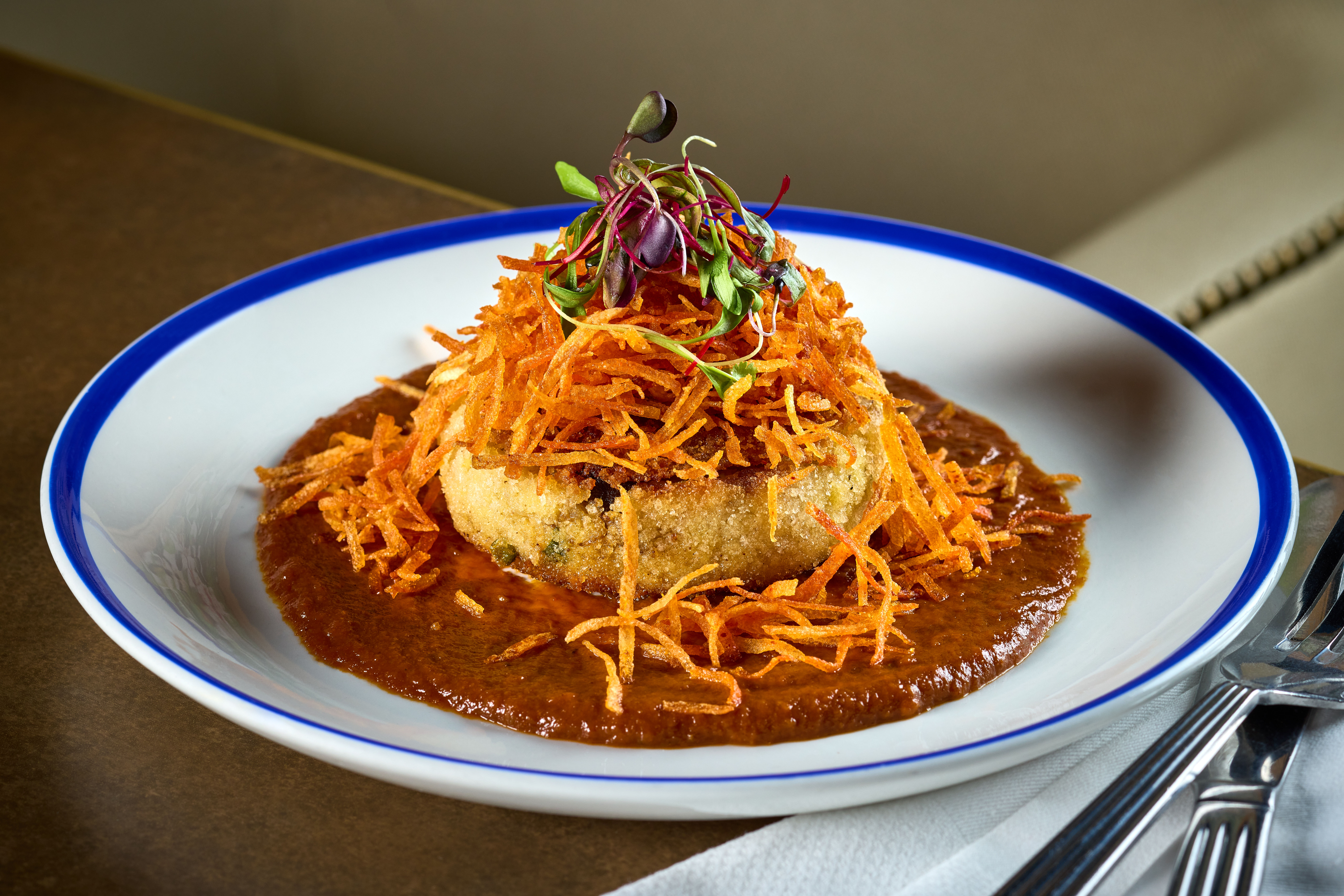The summer is upon us, and grills and smokers all over the DMV are heating up as well. For the series “Fired Up with Jake and John,” WTOP’s Mike Jakaitis and John Domen talk with some of the region’s best pitmasters about their methods, with the goal of helping you level up your barbecue game.
So far, we’ve talked about cuts of meat, smoking times and cooking techniques. We haven’t said a lot about spice rubs or wood, but they’re an important part of the flavor — and the smell — of great barbecue.
Fernando Gonzalez, who owns 2Fifty BBQ, in Riverdale, Maryland, calls wood his main ingredient. He has giant sheds full of oak to cook with because it’s easy to get in bulk. But for backyard cooks, Gonzalez suggests different woods for different meats.
“If you’re cooking one small batch of briskets for your family and friends in the backyard, I would say hickory and mesquite. It’s a good way to enhance the smoky flavor,” Gonzalez said. When he’s cooking chicken in his own backyard, Gonzalez likes to use Applewood.
Myron Mixon, the owner of Myron Mixon’s BBQ in Old Town Alexandria who just won his fifth Memphis in May World Championship, uses a variety of wood.
“Hickory is a great wood for barbecue, and is readily available,” Mixon said. And as a Georgia native, he has access to peach wood, which he calls “awesome.”
Spice rubs are another key factor in great barbecue, but where do you start in creating a good rub?
Rob Sonderman, at the Federalist Pig, said he uses five seasonings as a base.
“Salt, black pepper, garlic powder, chili powder and brown sugar are kind of like my five keys to a dry rub,” Sonderman said.
- Your smoker didn’t stop cooking — you just hit ‘the stall’
- Learning the BBQ favorites
- Cooking ribs can be easy, but expert pitmasters are even faster
You can add other seasonings along the way: Sonderman said he sometimes likes to add a little cumin to his rub. At home, he experiments with more unusual flavors, and last Christmas, he smoked a Peking-style duck.
But don’t get too complicated.
“If you’re going to be experimenting at home, don’t try to change too many things each time,” Sonderman said. “If you want to change your rub up, maybe add one more ingredient each time you’re cooking, so you know what you’re liking and what you don’t like … trying to change five different things, you don’t really know what worked and what didn’t work, because you can’t really isolate the different changes you made.”
Gonzalez uses different rubs for beef, chicken and pork.
“Beef is 100% salt and pepper,” he said. “Kosher salt, ground black pepper.”
As for pork, salt and pepper make for the base. From there, “We play with Hungarian paprika, or chili powder. You need to use some garlic powder, some onion powder.”
Some people add sugar to their pork rubs, but not Gonzalez: “No sweet on the pork; sometimes we use a little bit of sugar on the chicken.”
Speaking of chicken, Gonzalez likes to brine his poultry for 24 to 72 hours to keep it from drying out.
Even with all of these tips, he also cautions: Don’t overthink the process.
“You are looking for good flavor but not as complex as [to hide] what the meat tastes like,” Gonzalez said. “At the end of the day, you want to taste that meat.”
Listen and subscribe to the “Fired Up with Jake and John” podcast on Podcast One







